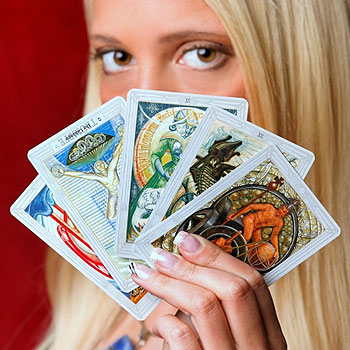7 Important Tarot Cards in the Major Arcana

|

The world of Tarot is a wondrous and fascinating place filled with mystical power and interesting legend. How the various tarot decks evolved from their original form to that of the common deck of playing cards is one of history's best stories, but let's take a look at some of the most well known cards that make up the old-fashioned tarot deck.
Remember, however, that many different tarot decks contain different cards from one another. Especially in the case of the minor arcana, the "suits" can change from deck to deck. There isn't any consensus "right" deck, they all have their own powers to help a trained reader divine the future.The Fool -- One of the best known cards in the tarot deck, the fool can symbolize many different things based on the question asked before the reading. In most cases, the fool brings about such descriptions as "immaturity, adventure, boldness, freedom" and "inexperience." In history, the Fool has the special distinction of usually having the number zero. While that designation isn't a uniform assignment across all decks, the Fool is usually seen as either the final trump card, the first trump card or even a completely separate card apart from the other trumps. Modern interpretations of the fool vary from the context in which the card fits into the question asked and the reader, but in most cases, the fool is interpreted as standing for folly and inexperience. It doesn't necessarily have to have a negative connotation, but it is interpreted that way in most cases.
Death -- One of the most dreaded cards in the tarot deck, but also one of the most misunderstood. The card is only interpreted by the most literal readers as meaning physical death. In almost all cases, the card stands for a change; usually a deep and through change in one's life. For some, the death card can be a positive if the change interpreted is the death of something negative. The number assigned to the card is 13, of course, an unlucky number in most Western cultures. In modern decks of playing cards, the ace of spades is considered to be the descendant of the death card, and is still referred to as such by many card players.

|


